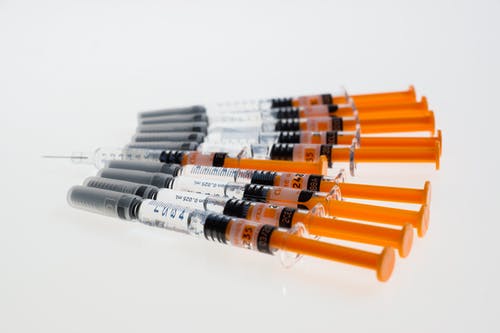Medical Devices
Can smart syringe act as “life saver” syringe in developing countries?
Discovery of syringe leads to the invention of injection for treating diseases. One of the important healthcare procedures is injection which has been used from long time to administer drugs across the globe. Hence, the pros and cons associated with the use of injection have been witnessed across the globe. Traditional use of syringes may create serious consequences when reuse of syringes is done by doctors and drug addicts that shares same syringe and get expose to the possibilities of blood borne diseases.
 |
| Smart Syringes Market |
The reuse of syringe by drug addicted people are major cause for blood borne diseases which are prevalent across the globe. Especially, heroin users that shares same needle used earlier by some other individual. Sharing ne edles of other drug users is the major reason of spreading of serious blood borne diseases such as HIV and hepatitis. In 2014, according to World Health Organization, approximately 1.7 million people were infected with Hepatitis B and around 315,000 people by Hepatitis C and 33,800 people by HIV virus though the use of unsmart syringe.
At this point, the need for smart drug delivery device have been emerged giving rise to the adoption of smart syringes. Smart syringes are so designed that it doesn’t allow any reuse of syringes once it is used. It may lead to decrease in the number of infectious diseases across the globe. Smart syringe is a powerful tool to curb blood borne diseases, especially in developing economies such as India, China, Indonesia, Korea and other African countries such as Kenya, Nigeria, Sudan etc. Many healthcare providers have been switched to smart syringe that cannot be used more than one time. There are variety of smart syringe available in the market provided by key manufacturers from around the world. There are various major players in the smart syringe market such as Becton, Dickinson And Company, Medtronic, Merck & Company Inc., Parker Hannifin, Retractable Technologies, Inc., Revolutions Medical Corporation, Star Syringe, and Terumo Medical Corporation.
Further, due to disadvantages of traditional syringes, WHO has launched a policy on injection safety to block the usage of unsafe injections. New WHO injection safety guidelines and policy provides recommendations on the value of safety features for syringes, including devices that protect health workers against accidental needle injury and consequent exposure to infection. Medical practitioners are educated on smart syringe use. Further, the manufacturers are developing innovative designs which are safe and can decrease rate of infectious diseases across the globe. Government in developing economies have been funding in healthcare sector to encourage the use of smart syringe.
New developments are taking place in the smart syringe market for example, in 2014, Dr David Swann's invented ABC syringe (A Behaviour Changing Syringe) which changes colour when taken out of its packaging. Such advancement can increase the use of smart syringe across the globe. People are getting aware of the cons of reuse of traditional syringes. The demand for safe injection practice in developed countries have been increasing prominently, however, it did not receive significant attention. In developing economies, dumped syringes are collected and sold back into the market, however, with government support and involvement of WHO, this ill practice is predicted to decrease in future. Further, local doctors in a small village in rural Cambodia used reused syringe which cause HIV to more than 200 people in 2014. At last, the use of the same syringe or needle to give injections to more than one person is significantly contributing towards the spread of infectious diseases across the globe. Hence, the policy makers from all the nations should promote the usage of “smart” syringes on a continuous and consistent basis to save the lives of millions of people.
Contact:
Anurag Tiwari
Email: info@omrglobal.com
Phone: +91 7803040404, +1 6467557667
Website: www.omrglobal.com
Anurag Tiwari
Email: info@omrglobal.com
Phone: +91 7803040404, +1 6467557667
Website: www.omrglobal.com


0 Comments